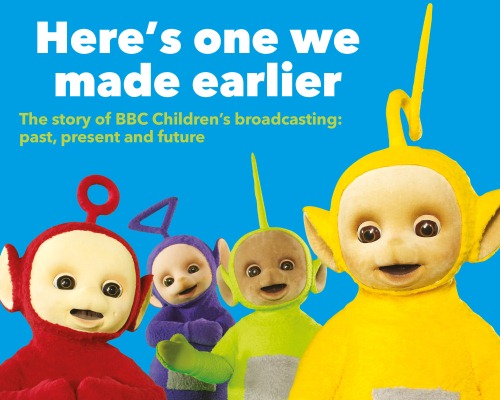We have an opportunity to build something new in the North, so can we not rely on a pale, male and stale stereotype?
This is not anti-man. This is not anti-white-man. Hell reader, I married one. This is a wish, an ambition, a suggestion that when we talk about power and success in the North we stop using white men to illustrate it.
Earlier this month I was flicking through my Twitter feed while I dried my hair and there was a link to a Guardian article about a tech cluster. My tech cluster. The one I work in. The one my consultancy is in, where my new start-up (which keeps getting delayed because I get busy) will be. I clicked. I scrolled. I sighed.
Plastered across a feature about my tech cluster were four guys, aged between 35 and 50, each looking affluent in an ‘it’s freezing and I’m outside’ way. Each white. Each very obviously men. Each one working in gaming.
I don’t work in gaming. I’m also not a man. Thanks to my dad’s Middle Eastern heritage I’m not totally white either. But I’m not there. I’m not particularly bothered about that but neither are the other women who work in this postcode either – the awesome woman who co-founded a venue that was recently nominated for the Stirling prize, another woman who set up an agency to support crowdfunding campaigns, and another who has this brilliant idea to transform a Brutalist flyover into an arts and green public space (for way less than Joanna Lumley’s pet project, by the way). None of the female coders, developers, hardware developers, games makers. None of the women who do any of that were there. Actually, the piece didn’t even speak to a single woman in the cluster at all.
It isn’t the first time. Many pieces about the Northern Powerhouse, about tech clusters in Leeds, Sheffield, Newcastle, Durham and Edinburgh talk to the same people that tech pieces always talk to – white men. Unless they’re specifically an article about people who aren’t white men being in tech. Then they talk to women. And possibly someone who isn’t white. The Tech North organisation is determinedly diverse but this shouldn’t be a surprise. It is, after all, meant to be representing an industry, not an idea of what an industry should be. This isn’t a Northern thing, it’s a tech thing, but sexism isn’t solely focused on tech.
 Two years ago, right before controversial harassment campaign Gamergate exploded, I was sitting on a panel at the Studio School (also in my postcode) which is for 14-19 year olds who want to get into the creative and digital sector. Is there, one of the girls asked me, sexism? This is always the question you get asked, by the way. Yes, I said, there is. Occasionally I’ve been treated like I’m the secretary in tech meetings. I’m frequently treated as though my digital consultancy isn’t as prestigious as others. The hours I put in, the time I spend, it isn’t as important. It isn’t unpleasantness. It isn’t bullying it’s just…dismissal. It’s not everyone. But there’s definitely a tier. And the tier generally goes along gender lines. This is what I said. A guy sitting two seats alongside from me who works for a gaming company, laughed and said I shouldn’t be so sensitive. I’ve also been told, by another man, that it’s not surprising I have a microbusiness and not a growing business because I’m a woman, and women lack ambition.
Two years ago, right before controversial harassment campaign Gamergate exploded, I was sitting on a panel at the Studio School (also in my postcode) which is for 14-19 year olds who want to get into the creative and digital sector. Is there, one of the girls asked me, sexism? This is always the question you get asked, by the way. Yes, I said, there is. Occasionally I’ve been treated like I’m the secretary in tech meetings. I’m frequently treated as though my digital consultancy isn’t as prestigious as others. The hours I put in, the time I spend, it isn’t as important. It isn’t unpleasantness. It isn’t bullying it’s just…dismissal. It’s not everyone. But there’s definitely a tier. And the tier generally goes along gender lines. This is what I said. A guy sitting two seats alongside from me who works for a gaming company, laughed and said I shouldn’t be so sensitive. I’ve also been told, by another man, that it’s not surprising I have a microbusiness and not a growing business because I’m a woman, and women lack ambition.
I’ve been on the receiving end of sexism before. One time, in a newsroom, a male colleague who was at least 25 years older than me, held up different coins from his wallet and asked me which one was the same size as my nipples. Yeah, I’m embarrassed typing that, even though it wasn’t my fault. I’m embarrassed, almost of my own nipples, like they shouldn’t have been there, under a shirt, taunting him with their very existence.
Tech clusters are something to get excited about in the North. According to the Tech City UK report, wages in tech clusters are going up. People are earning more money. They’re making more money too. Most importantly, they’re not moving to ‘that London’. Instead, they’re staying put and showing people an alternative. You don’t have to move to be successful. You can stay here, be creative, do something you love, work for yourself and buy a massive house. There are alternatives.
The problem is this: if articles focusing on the pale and male staid stereotype being successful and powerful keep appearing then we’re not telling everyone that they can be a success. We’re just letting the white boys know. If a 15-year-old girl looked at that piece in The Guardian does she see a place for herself in that tech cluster? Or does she see yet another battle in which to carve her own niche in that cluster? Does a black teenager sit there and think that maybe they should just move to London, because there are people like them there?
There are not enough women and men from black and minority ethnic groups in the tech industry, in the North of England or anywhere else. But that isn’t going to change if we define what success looks with one kind of face.
I don’t want to be in London. I love that city but I don’t want to live somewhere where a quarter of the population lives in poverty. I live in a big house in Liverpool, which I own. I walk to my office. There’s a park across the road. I’m two hours from the capital, two hours from Scotland, an hour from Manchester, two from Leeds. I like where I am. But I’ll tell you what London’s got that we haven’t – our young people. It holds their hopes, dreams and aspirations. Sometimes it spits them back out, other times it swallows them up. Plenty will always want to move to London, but it shouldn’t be the only alternative, the only choice for those who want to see themselves as being successful.
So this is my plea. It wasn’t The Guardian journalist’s fault. We’re all to blame. Everyone who is selling in stories or writing about tech clusters, or championing local businesses or doing anything. We should sell ourselves to as many of our young people as we can, so they can see themselves here. White, Black, Asian, Arabic, European, American, female, male, transgender, everything. And if there aren’t enough businesses in the tech clusters to show that diversity then we should start encouraging it and help as many people as we can get a foothold. We have to hold up a mirror and show every young person that they can stay here if they want to – and they can be an unrivalled success. We aren’t going to win this fight alone.
By Laura Brown
Laura Brown is a writer and consultant based in Liverpool. She specialises in art, technology, culture and destinations.











